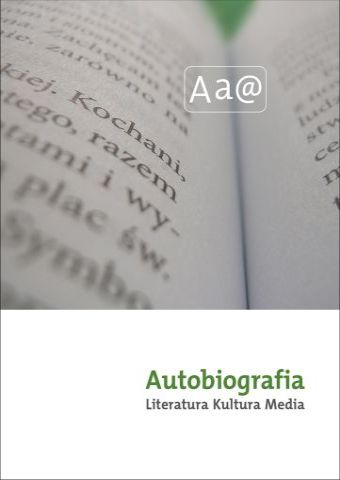






| Authors: |
Andrzej
Pawelec
Uniwersytet Jagielloński Magdalena Sitarz Uniwersytet Jagielloński |
| Keywords: | Katsenelson autobiography Yiddish Shoah |
| Data publikacji całości: | 2017 |
| Page range: | 16 (83-98) |
| 1. | Kacenelson, Jicchok. דאָס ליד פֿונעם אויסגעהרגעטן יידישן פֿאָלק [Dos lid funem ojsgehargetn jidiszn folk, Pieśń o zamordowanym żydowskim narodzie]. Nju Jork: IKUF, 1963. |
| 2. | Anderson, Benedict. Wspólnoty wyobrażone. Rozważania o źródłach i rozprzestrzenianiu się nacjonalizmu. Tłum. Stefan Amsterdamski. Kraków: Znak, 1997. |
| 3. | Biermann, Wolf. „Jizchak Katzenelson, ein Jude”. W: Dos lied vunem ojsgehargetn jidischn volk. Großer Gesang vom ausgerotteten jüdischen Volk, Jizchak Katzenelson. Tłum. z jidysz Wolf Biermann, 7–29. Köln: Kiepenheuer & Witsch, 1994. |
| 4. | Biermann, Wolf. „Katzenelson, der Jid (oder über die Arbeit des Übersetzers)”. W: Dos lied vunem ojsgehargetn jidischn volk. Großer Gesang vom ausgerotteten jüdischen Volk, Jizchak Katzenelson. Tłum. z jidysz Wolf Biermann, 197–226. Köln: Kiepenheuer & Witsch, 1994. |
| 5. | Biermann, Wolf. Warte nicht auf bessre Zeiten! Autobiographie. Berlin: Propyläen, 2016. |
| 6. | Birenbaum, Halina. „Poematy zza drutów wyszły na świat?”. Odgłosy 43 (1988): 10. |
| 7. | Cassirer, Ernst. Esej o człowieku. Tłum. Anna Staniewska. Warszawa: Czytelnik, 1977. |
| 8. | Cohen, Myer. „Biographical Notes”. W: Vittel Diary, Yitzhak Katznelson. Tłum. z hebrajskiego Myer Cohen, 9–40. Tel-Aviv: Ghetto Fighters’ House, 1964 |
| 9. | Davies, Peter. „‘Die Juden schiessen!’ Translations by Hermann Adler and Wolf Biermann of Yitzhak Katzenelson’s epic poem of the Warsaw Ghetto”. Modern Language Review 109 (2014), 3: 708–725. |
| 10. | Ek, Nosn. ” מיטן דיכטער אין די יאָרן פֿון אומקום „ [Mitn dichter in di jorn fun umkum, Z pisarzem w latach Zagłady]. די גאָלדענע קייט [Di goldene keyt, Złoty Łańcuch] 49 (1964): 25–35. |
| 11. | Encyclopedia of Holocaust Literature, red. David Patterson, Alan L. Berger, Sarita Cargas. Westport, Conneticut and London: Oryx Press, 2002. |
| 12. | Ficowski, Jerzy. „Słowo o Icchaku Kacenelsonie”. W: Pieśń o zamordowanym żydowskim narodzie. Przekład, wstęp i przypisy Jerzy Ficowski, Icchak Kacenelson, 6–11. Warszawa: Czytelnik 1982. |
| 13. | Geller, Ewa, Monika Polit, red. Jidyszland – polskie przestrzenie. Warszawa: Wydawnictwo Uniwersytetu Warszawskiego, 2008. |
| 14. | Geva, Sharon. „‘To collect the tears of the Jewish people’: the story of Miriam Novitch”. Holocaust Studies 21 (2015), 1–2: 73–92. |
| 15. | Kacenelson, Icchak. Pieśń o zamordowanym żydowskim narodzie. Przekład, wstęp i przypisy Jerzy Ficowski. Warszawa: Czytelnik, 1982. |
| 16. | Kacenelson, Icchak. „Zagajenie wieczoru poświęconego Pismu Świętemu”. Tłum. Stefan Bergman. Dostęp 25.06.2017. http://www.izrael.badacz.org/historia/szoa_wiersz_2.html. |
| 17. | Kacenelson, Jicchok. ייִדישע געטאָ־כּתבֿים [Jidisze geto-ksowim, Pisma z getta w jidysz, edited by Jechiel Szejntuch]. Tel-Aviv: Ghetto Fighters’ House, 1984. |
| 18. | Kacenelson-Nachumow, Cipore. יצחק קאַצענעלסאָן [Jicchok Kacenelson]. Buenos-Ajres: Central farlag fun pojlisze jidn in Argentine, 1948. |
| 19. | Kassow, Samuel D. Who Will Write Our History? Bloomington: Indiana University Press, 2007 [wyd. polskie] Kto napisze naszą historię? Ostatni rozdział zagłady warszawskiego getta. Ukryte Archiwum Emanuela Ringelbluma, tłum. Grażyna Waluga i Olga Zienkiewicz. Warszawa: Amber, 2010]. |
| 20. | Katzenelson, Itzhak. Pinkas Vitel [manuskrypt w Ghetto Fighters’ House Archives, nr cat. 6630 (Collections Section). Dostęp 25.06.2017. http://infocenters.co.il/gfh/search.asp?lang=ENG]. |
| 21. | Katznelson, Yitzhak. Vittel Diary [translated from the Hebrew by Myer Cohen]. Tel-Aviv: Ghetto Fighters’ House, 1964. |
| 22. | Katznelson, Yitzhak. „Letter to Berl Katznelson and Yitzhak Tabenkin” [translated by T.M. Lask]. W: Extermination and Resistance. Historical Records and Source Material, red. Zvi Shner, 27. Tel-Aviv: Ghetto Fighters’ House, 1958. |
| 23. | Niborski, Jicchok. ווערטערבוך פֿון לשון־קדוש־שטאַמיקע ווערטער אין ייִדיש [Werterbuch fun loszn-kojdesz-sztamike werter in jidisz, Słownik wyrazów pochodzenia hebrajskiego w języku jidysz]. Paris: Bibliothèque Medem, 1999. |
| 24. | Pawelec, Andrzej, Magdalena Sitarz. „Ostatni Żyd w Europie”. Zeszyty Naukowe Centrum Badań im. Edyty Stein 12 (2014): 203–220. |
| 25. | Ricoeur, Paul. O sobie samym jako innym. Tłum. Bogdan Chełstowski. Warszawa: Wydawnictwo Naukowe PWN, 2003. |
| 26. | Rosenbloom, Noah H. „The threnodist of the Holocaust”. Judaism 26 (1977): 232–247. |
| 27. | Roskies, David G. Against the Apocalypse: Responses to Catastrophy in Modern Jewish Culture. Cambridge, Mass.: Harvard University Press, 1984. |
| 28. | Roskies, David G., red. The Literature of Destruction: Jewish Responses to Catastrophy. Philadelphia: Jewish Publication Society, 1989. |
| 29. | Roskies, David G., Naomi Diamant. Holocaust Literature: A history and guide. Waltham: Brandeis University Press, 2012. |
| 30. | Rosner, Katarzyna. Narracja, tożsamość i czas. Kraków: Universitas, 2006. |
| 31. | Shapira, Anita. Berl: The Biography of a Socialist Zionist: Berl Katznelson 1887–1944. Cambridge: Cambridge University Press, 1984. |
| 32. | Sitarz, Magdalena, Andrzej Pawelec. „‘Fartaytsht un farbesert’: Wolf Biermann and Yitskhok Katsenelson’s Dos lid funem oysgehargetn yidishn folk”. Studia Litteraria Universitatis Iagellonicae Cracoviensis 10 (2015), 1: 37–44. |
| 33. | Szeintuch, Yechiel. „The Warsaw writings of Yitzhak Katzenelson (1940–1943)”. W: ייִדישע געטאָ־כּתבֿים [Jidisze geto-ksowim, Pisma z getta w jidysz, edited by Jechiel Szejntuch], Jicchok Kacenelson, III–X. Tel-Aviv: Ghetto Fighters’ House, 1984. |
| 34. | Taylor, Charles. Źródła podmiotowości. Narodziny tożsamości nowoczesnej. Tłum. zbiorowe. Warszawa: Wydawnictwo Naukowe PWN, 2001. |
| 35. | Zeitlin, Aaron. „Isaac Katznelson”. W: An Anthology of Modern Yiddish Literature, red. Joseph Leftwich, 129–131. The Hague: Mouton, 1974. |